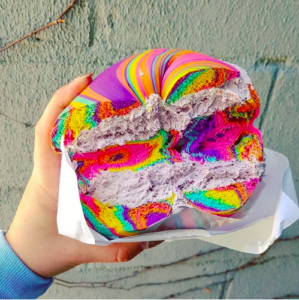


I love when words unexpectedly passed from one subject area to another reveal something about the second subject area that was previously undefinable. In this case, it’s the taste sense “umami.” The authors of this article extend the definition of umami to popular culture, explaining on the deconstructed emergent properties of that taste help us make sense of an economy and society increasingly driven by vibes. As technology compounds our content and cultural algorithms faster than our minds can make sense of them, is it any surprise our brains resort to finding comfort in irony and paradox?
Value, in an economic sense, is theoretically created by new things based on new ideas. But when the material basis for these new things is missing or actively deteriorating and profits must be made, what is there to be done? Retreat to the immaterial and work with what already exists: meaning.
Meaning is always readily available to be repeated, remixed, and/or cannibalized in service of creating the sensation of the new.
The umami generation process accelerated by breaking cultural things into discrete (marketable) parts through which they become even more consumable and easier to mix into novel, delicious combinations, often across different sensory domains. These combinations could be unstable – as in actually plain dumb, dysfunctional, dangerous – because they didn’t need to last long. There was no value system against which one could measure their worth – beyond the immediate sense of yumminess and the transactions they triggered.
Cultural umami is the vague sense that yes, for some reason, it is. ““This shouldn’t be good but it is” “this doesn’t seem like what it’s supposed to be” “I shouldn’t be here but i am” “this could be anywhere but it’s here” If you tried to unpack your intuition, the absence of the there-there would quickly become evident.